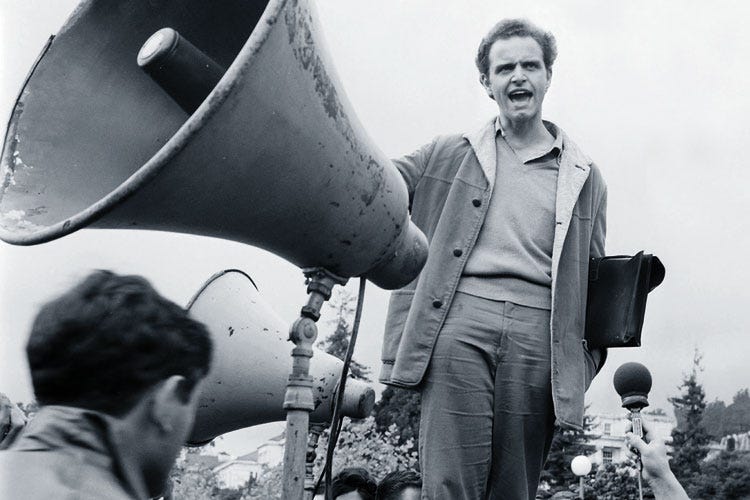An Australian citizen, Matthew Radalj, has gone public with a harrowing account of the five years he spent imprisoned at Beijing No. 2 Prison, one of China’s main facilities for international inmates, revealing a system plagued by torture, psychological abuse, forced labour, and appalling living conditions, according to a report by the BBC.
 He spent months in a detention centre, which he described as a brutal “transition phase” (Representational Image/Pexel)
He spent months in a detention centre, which he described as a brutal “transition phase” (Representational Image/Pexel) A video producer by profession, Radalj was arrested on January 2, 2020, following an altercation with shopkeepers at an electronics market in Beijing. He says the incident stemmed from a disagreement over the price to repair his phone screen, but it escalated into a criminal case.
"I was in really bad shape when I arrived. They beat me for two days straight in the first police station that I was in. I hadn't slept or eaten or had water for 48 hours and then I was forced to sign a big stack of documents," Radalj said.
He claims he was coerced into signing a false confession for robbery after being told that trying to defend himself in a system with a near-100% conviction rate would be futile. According to court documents, the confession helped reduce his sentence to four years, reported the outlet.
Life in prison
Before being moved to the main prison, Radalj spent months in a detention centre, which he described as a brutal “transition phase” where prisoners were denied hygiene, access to showers, or even clean toilets.
"We were banned from showering or cleaning ourselves, sometimes for months at a time. Even the toilet could be used only at specific allotted times, and they were filthy—waste from the toilets above would constantly drip down on to us."
Once transferred to the regular prison, Radalj said inmates were packed into overcrowded cells under constant lighting, eating and sleeping in the same cramped spaces. The prison population included men from various countries, including Pakistan, Nigeria, Afghanistan, the UK, the US, Latin America, and Taiwan—many imprisoned for drug-related offences.
He described the “good behaviour points” system as another layer of psychological Australian citizen Matthew Radalj has gone public with a harrowing account of the five years he spent imprisoned at Beijing No. 2 Prison—one of China’s main facilities for international inmates—revealing a system plagued by torture, psychological abuse, forced labour, and appalling living conditions.
Arbitrary punishment
Prisoners were told they could reduce their sentences by earning points through activities like reading Communist Party literature or working in the prison factory. But Radalj said the system was manipulated to prevent inmates from ever achieving early release.
He explained that guards would dock points arbitrarily, “Infractions included - but were not limited to - hoarding or sharing food with other prisoners, walking ‘incorrectly’ in the hallway by straying from a line painted on the ground, hanging socks on a bed incorrectly, or even standing too close to the window.”
Peter Humphrey, a former British prisoner who spent two years in Shanghai, confirmed a similar system in place at his facility, adding, "There were cameras everywhere... If you crossed a line marked on the ground... or didn’t make your bed properly to military standard... you would be punished."
Radalj and several others eventually gave up on trying to earn points. In retaliation, prison authorities imposed other forms of pressure—like cutting phone call time with family or revoking access to personal items.
Also read: Mind-controlled devices are already here - and 2025 could be the year they go mainstream
Daily food deprivation was another common punishment. Prisoners were usually given watery cabbage soup, bits of carrot, and occasionally mantou (a type of plain bread).
“Their diets were so low in nutrition – and they could only exercise outside for half an hour each week – that they developed flimsy upper bodies but retained bloated looking stomachs,” one inmate told the BBC.
Although inmates could technically supplement their diet using funds from their families, this privilege was also used as leverage. Radalj said he was denied extra food or basic hygiene items for 14 months because he refused to work in the prison factory.
He also described being forced to work on a prison farm, growing vegetables he was never allowed to eat. “We would be growing tomatoes, potatoes, cabbages and okra and then – at the end of the season – they would push it all into a big hole and bury it,” he said.
A turf war broke out between Nigerian and Taiwanese prisoners over control of the kitchen, which led to a violent brawl. Caught in the middle, Radalj was sent to solitary confinement for 194 days.
He described the cell as “a bare room of 1.2 by 1.8 metres,” with minimal light and no human contact.
"You start to go crazy, whether you like it or not... After four months, you just start talking to yourself all the time.”
Prison authorities also staged propaganda displays to present a false image of humane conditions. In one instance, Radalj said:
“They got everyone together and told us that we’d get our own email address and that we would be able to send emails. They then filmed three Nigerian guys using these computers... but the computers weren’t actually connected to the internet.”
Throughout his sentence, Radalj secretly kept a journal by writing on pieces of peeled Covid masks. North Korean prisoners helped him write in tiny script to fit everything in. Before being released on October 5, 2024, he hid the notes inside the lining of his old jacket, fearing detection.
"They trashed all my belongings. I was thinking they're gonna take me back to solitary confinement. There will be new charges... But the guard holding my clothes never knew the secret journal had been slipped inside."
On the flight back to Australia, he finally confirmed the notes had survived. After returning home, he reunited with his father at Perth Airport and later married his long-time partner.
Radalj says he’s still processing the trauma, but is now committed to helping other inmates connect with their families.
“I have spent the best part of six months contacting their families, lobbying their embassies so they might try to do a better job of helping them during their incarceration.”
He says helping others has helped him heal, "With freedom comes a great sense of gratitude... But I also have a great sense of responsibility to the people I left behind in prison.”
Also read: Before she was arrested for spying for Pak, this man warned NIA about Jyoti Malhotra
.png)




